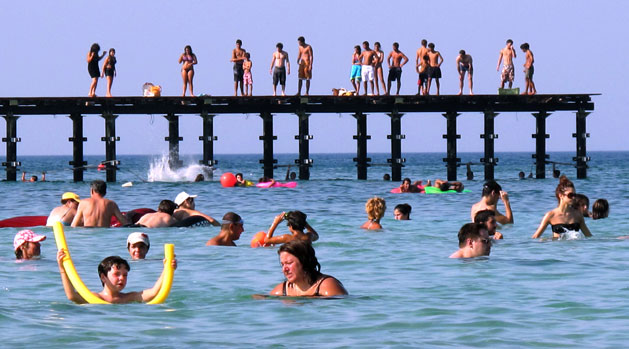Britons fall out of love with booze cruises and two-week breaks
Rapid growth in budget airlines is said to have sparked a rise in short foreign holidays

A free daily email with the biggest news stories of the day – and the best features from TheWeek.com
You are now subscribed
Your newsletter sign-up was successful
Britons are taking more holidays than ever before, but now prefer shorter breaks to two-week long getaways. They're also no longer bothering with "booze cruises" to France.
The Office for National Statistics (ONS) has released a report to coincide with the peak holiday season. It found that UK residents went on 45 million foreign breaks last year, up 68 per cent since 1996.
The figure far outstrips the 12 per cent rise in the UK population over the same 20-year period, says The Guardian.
The Week
Escape your echo chamber. Get the facts behind the news, plus analysis from multiple perspectives.

Sign up for The Week's Free Newsletters
From our morning news briefing to a weekly Good News Newsletter, get the best of The Week delivered directly to your inbox.
From our morning news briefing to a weekly Good News Newsletter, get the best of The Week delivered directly to your inbox.
But the length of these holidays has declined on average. In 1996, the number of one-week and two-week holidays was roughly equal, but now there are three times as many seven-day stays.
"The week-long break is a lot more popular than before, and there's also been an increase in the number of holidays lasting ten nights," the ONS said.
These shifts are largely attributed to the rise in budget airlines as a result of the European Union's free skies agreements, which has made it cheaper to go on multiple holidays.
A spokesperson for the Association of British Travel Agents (Abta) says: "These stats are a reflection of how far we have come in 20 years and how important it is that we keep similar agreements in place post-Brexit."
A free daily email with the biggest news stories of the day – and the best features from TheWeek.com
Another trend in the report is the supposed decline of booze cruise ferry jaunts to Calais. This is ascribed to a drop in trips with no overnight stay from more than two million in 1996 to just 323,000 last year.
The ONS says the drop could reflect the fact that trips across the Channel to stock up on cigarettes and alcohol are no longer cost-efficient.
"Duty-free sales within the EU ended in 1999, France has been ratcheting up the price of cigarettes since 2000, and in recent years the pound has fallen in value against the euro."
Figures out this week from Visa suggest that spending on foreign holidays is declining as a result of the rising pound. A commensurate rise in "staycations" is boosting British bars, hotels and restaurants.